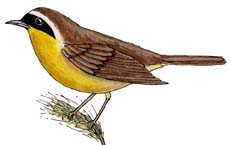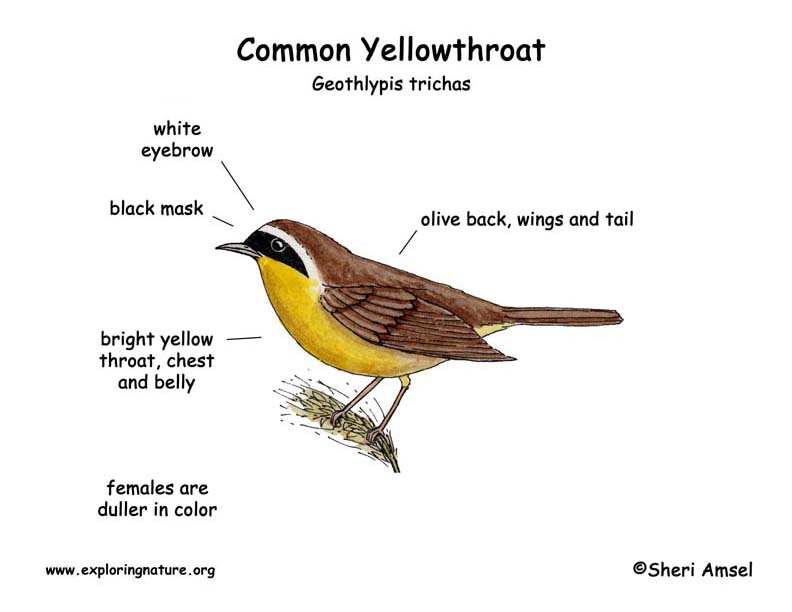

They breed in southeastern Alaska across Canada to Newfoundland and south along both coasts to southern Florida and California, to Gulf Coast and eastern Texas. There are small groups in the western states and south into Mexico. They spend the winters in the coastal states from North Carolina to California, throughout Mexico, Central America, and the Bahamas.
They live in thick vegetation near the water in wetlands, grasslands and pine forests.
They are small songbirds with an olive back, wings and tail, a bright yellow throat, chest and belly and a black mask and white eyebrow. Females are duller in color.
They are very shy and are more often heard than seen.
They eat insects and spiders.
They build a big, loose nest of grass on or near the ground. The Female lays 1 – 6 white eggs with dark spots.
Kingdom: Animalia
Phylum: Chordata
Subphylum: Vertebrata
Class: Aves
Order: Passeriformes
Family: Parulidae
Genus: Geothlypis
Species: G. trichas
When you research information you must cite the reference. Citing for websites is different from citing from books, magazines and periodicals. The style of citing shown here is from the MLA Style Citations (Modern Language Association).
When citing a WEBSITE the general format is as follows.
Author Last Name, First Name(s). "Title: Subtitle of Part of Web Page, if appropriate." Title: Subtitle: Section of Page if appropriate. Sponsoring/Publishing Agency, If Given. Additional significant descriptive information. Date of Electronic Publication or other Date, such as Last Updated. Day Month Year of access < URL >.
Amsel, Sheri. "Yellowthroat (Common)" Exploring Nature Educational Resource ©2005-2024. December 13, 2024
< http://exploringnature.org/db/view/104 >

